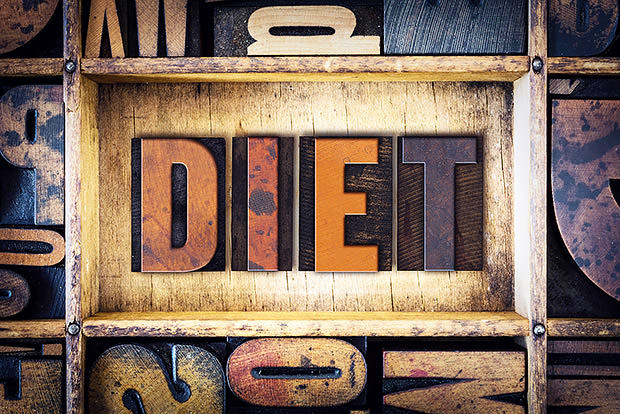
Marketers of fad diets try to appeal to your desire for quick-fix weight loss. Unfortunately, these diets are not the answer for long-term health and may do more harm than good. Use these tips to spot and steer clear of fad diets.
It is very low in calories.
Weight loss requires that you burn more calories than you take in, but this doesn’t mean that an extremely low number of calories is a good thing. The National Institutes of Health warn that diets with 800 or fewer calories should be avoided unless you are being monitored by a doctor. An eating plan that provides 1,200 to 1,500 calories per day helps most women lose weight safely, while an eating plan with 1,500 to 1,800 calories per day is ideal for men. Eating too few calories prevents you from consuming the nutrients your body needs, drains your energy, and leaves you feeling hungry.
It requires the purchase of special foods or supplements.
A fad diet that requires you to purchase special meals, bars, and powders is not sustainable. You may find this convenient at first, but soon, those foods will lose their appeal, and the extra costs will add up. Often, these fad diets require a significant initial investment, which ends up wasted when you don’t achieve the unrealistic results promised by the program. A healthy eating plan must be flexible and affordable to fit your lifestyle.
It is too restrictive.
Cutting out entire food groups, eating only certain foods together, and avoiding foods at specific times of day are all indications of a fad diet. These practices restrict your ability to eat when you are truly hungry and may prevent you from satisfying healthy cravings. Restrictive eating leads to deprivation. When you feel deprived, often all you can think about is the one thing you can’t have. Few people have the willpower to stick to such strict rules, making you more likely to give in and overindulge. A balanced diet that allows you some of your favorite treats occasionally is a much more effective way to gain a healthy relationship with food and lose weight for good.
It ignores the importance of exercise.
It is possible to lose weight without physical activity, but research shows that regular exercisers are most successful at keeping weight off. A fad diet that promotes only dietary changes for weight loss does not provide you with the balanced plan you need to be successful. A healthy lifestyle is about much more than losing a few pounds. Exercise combined with healthy eating will help you lose weight while improving your fitness and energy levels.
It emphasizes that you don’t need to change anything.
A plan that says you don’t need to change your eating and activity habits to lose weight is likely a fad diet. The truth is that you do need to make positive changes to see results. If you are currently unhappy with your weight and your fitness level, you cannot continue your current eating and exercise patterns and expect to see results. Getting fit requires commitment. Anything worth having, including good health, is worth working hard for.
Sources



 8 Ways to Overcome a Lack of Support for Weight Loss
8 Ways to Overcome a Lack of Support for Weight Loss
 6 Tips for Controlling Portions
6 Tips for Controlling Portions
 Some People Dream of Success
Some People Dream of Success
 5 Breakfasts Under 300 Calories
5 Breakfasts Under 300 Calories
 4 Things to Know About Negative Calorie Diets
4 Things to Know About Negative Calorie Diets
 Healthy Ways to Motivate Your Friends
Healthy Ways to Motivate Your Friends
 15 Bites and Nibbles That Keep You From Losing Weight
15 Bites and Nibbles That Keep You From Losing Weight
 Recover from Weight Loss Setbacks
Recover from Weight Loss Setbacks

 Pinterest
Pinterest RSS Feed
RSS Feed